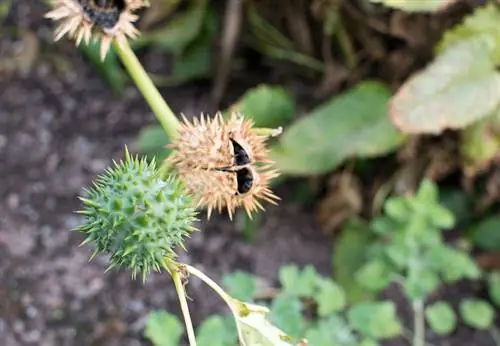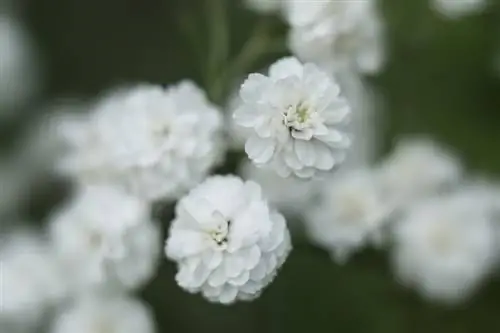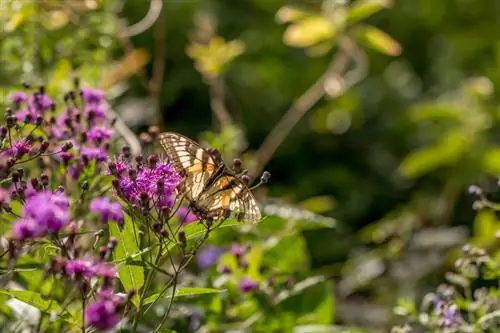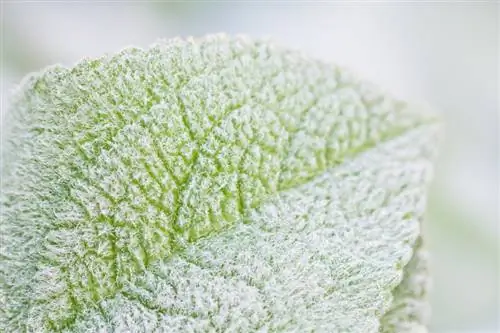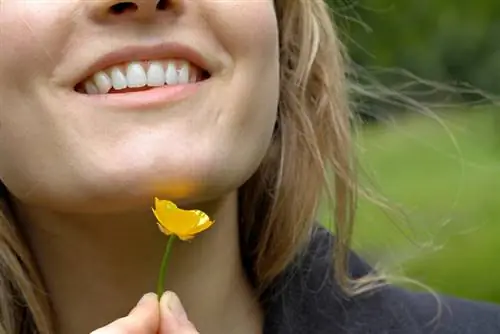- Author admin leonars@hobbygardeners.com.
- Public 2023-12-16 16:46.
- Last modified 2025-01-23 11:20.
While the exact origin of the datura is controversial, it has been spread worldwide to this day, not least because of the plant's hallucinogenic effects. Although the datura is no longer used medicinally due to its toxicity, the decorative flowers are the reason for sowing and propagation in many private gardens.
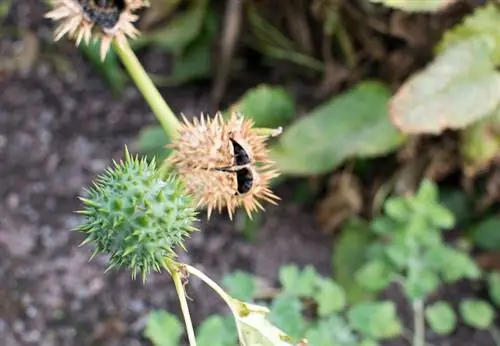
Is the datura poisonous?
The datura is poisonous because it contains atropine, scopolamine and hyoscyamine, which are found in high concentrations in all parts of the plant. These toxic substances can cause skin irritation, confusion, restlessness, blurred vision, convulsions, tantrums and even death from respiratory failure.
The former use of datura as an intoxicant
In the cultures of many indigenous peoples, parts and extracts of datura were used as drugs in ritual activities due to their hallucinogenic effects. In Europe, too, the datura was known in the Middle Ages as a magic herb for miracle healers and as a compulsive drug in prostitution. However, in most cases the intoxicating effect is overshadowed by the high effectiveness of the toxins, which is why the Roman writer Pliny described the datura as the basis for the production of spear poisons. The poisonous effect has also manifested itself in the following colloquial names for the datura:
- Sleepweed
- Witchweed
- Radweed
- Devil's Apple
The toxins contained in datura and their effects
The following toxins are particularly highly concentrated in the seeds of datura, but also in all other parts of the plant:
- Atropine
- Scopolamine
- Hyoscyamine
There are also other toxic substances present in smaller quantities, which can lead to the following symptoms even in minimal doses:
- Skin irritation
- Confusion
- Unrest
- Visual problems
- Cramps
- Fantastic fits
- Death from respiratory arrest
Precautions when cultivating Datura
There are now attempts to reduce or completely eliminate the concentration of toxins contained in cultivated forms of datura for garden cultivation. However, if in doubt, you should avoid growing datura if you regularly have children or pets running around in your garden. Please also note that due to its large number of seeds, the annual Datura can multiply on its own after it is first grown.
Tip
Due to current knowledge about the toxicity of Datura, any use for therapeutic (apart from professional use in homeopathy) or intoxicating purposes is generally not recommended, as even supposedly small doses can quickly lead to death due to respiratory paralysis due to the fluctuating poison content.

